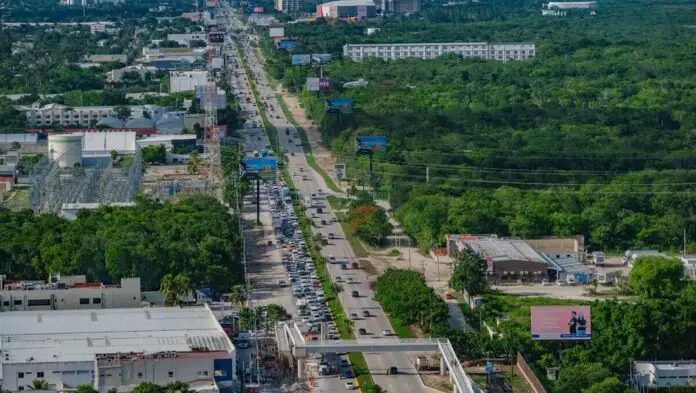Crimes of damage and injury committed in the transport service, both public and private, including taxi drivers and platforms such as InDrive, Didi, and Uber, will now be investigated automatically in Quintana Roo. This follows the approval of reforms to the Penal Code and the State Mobility Law by the XVIII Legislature of the local Congress.
Key Changes
Promoted by Governor María Elena Mara Lezama, these modifications allow authorities to act without the need for a prior complaint, enhancing the security of users, citizens, and tourists. Notable changes include the creation of articles 107 Bis, 162 Bis, and 185 Bis, along with adjustments to article 182 of the Penal Code.
Reformed Articles
– Article 107 Bis: Penalties for homicide or injuries related to transport will increase by up to 50% if the crimes occur during the provision of the service. If the victims are under 18 years old or tourists, the penalties could increase by up to two-thirds.
– Article 162 Bis: Punishments of two to six years in prison for those who commit damage to public or private transport services. These crimes will also be investigated immediately by the Public Prosecutor’s Office.
– Article 182: Modifications seek to penalize more severely attacks against communication routes and means of transport, with sanctions ranging from six months to four years in prison.
– Article 185 Bis: Reinforces these measures, increasing penalties by up to 50% in cases where attacks on communication routes occur during the provision of the transport service.
Governor’s Statement
“In Quintana Roo, we will not tolerate any act that affects the livelihood of families and the free right of users to choose their preferred means of transportation. This guarantees healthy competition between modes, seeking equal conditions between public and private transportation services,” said Governor María Elena Mara Lezama.
Mobility Reform Details
The reforms to the Mobility Law include new provisions to suspend or cancel licenses, permits, and transportation concessions in cases of related crimes. This aims to create fair conditions between public and private services, promoting healthy competition and protecting the right of users to choose their means of transportation.
These reforms result from working groups with citizen participation and public and private sectors, marking another step towards a safer and fairer mobility model in the state.
Legislative Support
“The strengthening of sanctions for those who threaten the safety of people and public and private property is a clear sign that in Quintana Roo there is no room for violence or practices that threaten the well-being of citizens,” said Jorge Sanén Cervantes, president of the Government and Political Coordination Board (Jucopo).
Renán Sánchez Tajonar, deputy of the Green Party, added that the reform to the Mobility Law creates a “historic and necessary legal framework that encourages fair competition, allowing citizens to choose the means that best suits their needs and ensuring that all actors in the sector operate under the same rules, with an efficient and safe service.”
Source: Milenio




